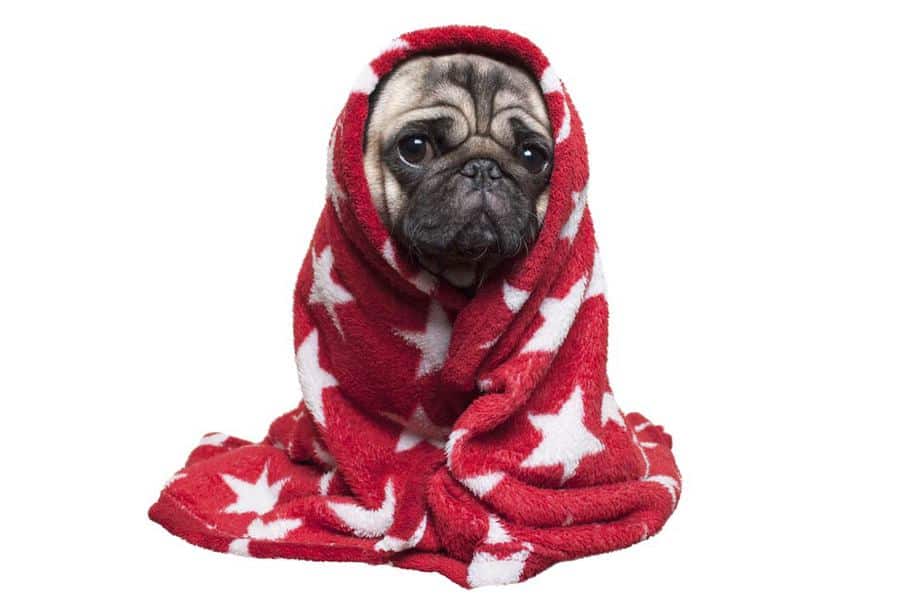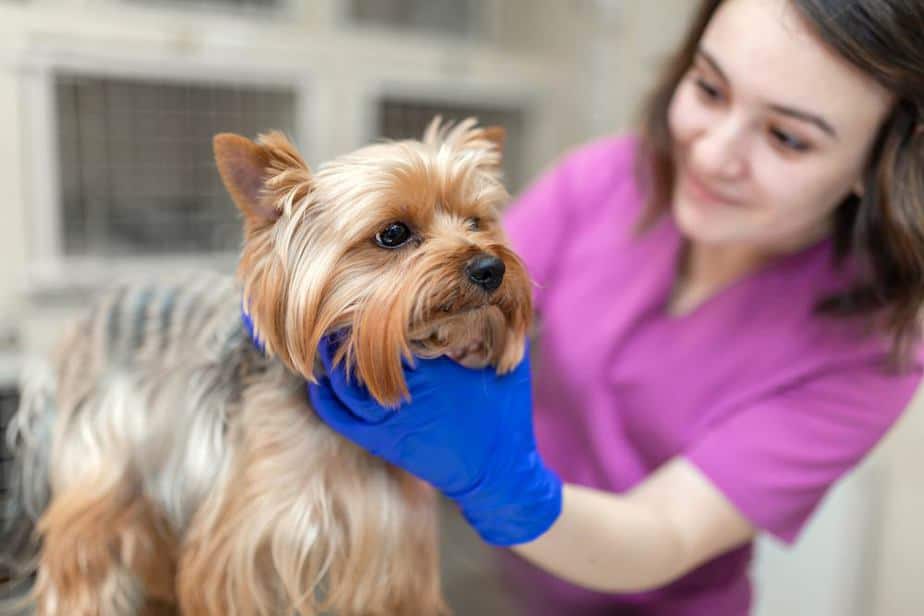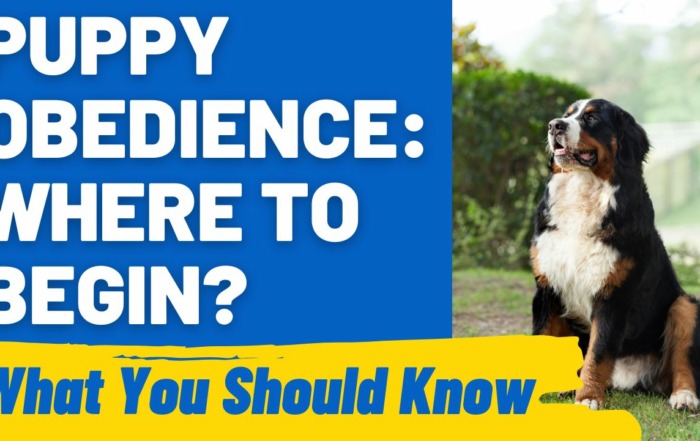Having a restless puppy can be worrying and it’s important to determine if there are any serious issues or if it’s normal puppy behavior. If your puppy is pacing a lot, wakes up often at night, and is generally unsettled, then you have a restless puppy on your hands. Luckily, there are some things you can do to help them settle and spend more time on their bellies.
Why Your Puppy is Restless
Restless puppies need time to adjust to their new home. Restlessness can be caused by missing their litter and mother, adjusting to new smells, people, and their environment. It can take two weeks for your puppy to fully adjust to their new home.
If your puppy is restless and can’t get comfortable beyond this initial transition period into your home, then it’s time to take a more in-depth look at what may be causing their unsettled behavior.
Reasons for Restless Puppies
Here is a list of possible causes for your puppy’s restless behavior, and below we go into more depth on each one:
- Worms
- Excess Energy
- Anxiety
- Illness
- Diet
- Poising / Toxic Food Ingestion
- Parasites
- Scent
- Pain
As you can see there are quite a few possible culprits that are behind their restlessness. Fortunately, it’s easy to eliminate some of them right off the bat. Read through each one and see which one/s may be related to your puppy.
Anxiety
If your puppy is anxious then this can definitely be the cause of their restlessness. One of the main telltale signs of an anxious puppy is pacing. Puppy anxiety comes from two places, either fear or separation.

Fear
A puppy can experience fear from being in a new environment, from loud noises, unusual smells, or unfriendly people.
Your puppy should have their own quiet space to settle in their home, which is why a crate is such a valuable aid for them. It can be a safe haven from something that may be scaring them.
If the fear is related to being in their new home, whether it’s new people or smells, then give them some more time to adjust, making sure to be a calming supportive owner through this process.
With both fear and separation related anxieties, crate training can go a long way to helping them cope and overcome their restlessness.
Separation Anxiety Symptoms
Watch for these other symptoms along with their restless behavior:
- Pacing
- Panting
- Barking
- Constant chewing
- Aggression
- Defecating in areas not usual to them
- Repetitive behaviors
If your puppy is showing these signs, then it’s likely they are experiencing separation anxiety.
If you think this is your pup, then you should consider the following list of possible treatments to aid in their recovery:
Socialization – Take them to puppy school
Training – Obedience training will help to build a relationship between you and your puppy, and also works their mind and tires them out
Exercise – Ensure your puppy is adequately exercised and uses up all their energy on games throughout their day
Scent Association – Give your puppy worn clothing from you to lay on and sleep with, especially if you need to leave them alone
Over the Counter Calming Supplements – There are a range of products now that can assist in calming anxious dogs and it may be worth trying if other options aren’t working
Also consider reading our post, Puppy is Sad and Depressed: (What to do about it)
Worms causing restlessness
If your puppy has worms, then they will no doubt be agitated and find it difficult to get comfortable anywhere. To determine if your pup has worms look at the following symptoms and see if any of them can relate to your puppy.
If they do have any of the below symptoms, then it’s best to take your puppy to their vet, as these symptoms are also associated with other more concerning illnesses.
- Diarrhea
- Abdominal pain
- Weight loss
- Vomiting
- Poor coat appearance
- Pot-bellied appearance
- Lethargy
- Dehydration
- Deficiencies in nutrition and anemia
- Intestinal blockage or pneumonia
- Blood in stool (either bright red or darker purple)
List acquired from the American Kennel Club: https://www.akc.org/expert-advice/health/worms-in-dogs-prevention-diagnosis-treatment/
It’s recommended that you worm your puppy every two weeks until 3-months old. From 3-6 months you should worm them every month. Beyond 6-months they should take a worming tablet every 3-months.
Here are our recommended worming tablets:
Trifexis Chewable Tablets for Dogs, 5-10 lbs
Trifexis Chewable Tablets for Dogs, 10.1-20 lbs
Trifexis Chewable Tablets for Dogs, 20.1-40 lbs
Excess Energy
Your puppy should be sleeping 18-20 hours out of the daily 24. In the time they’re awake they should be exploring, playing, running, and using up their bursts of energy.
If your puppy has excess energy, it’s going to be difficult for them to settle and get comfortable. It’s important that you offer them body and mind stimulation in the hours they’re awake.
If a puppy has a lack of toys, or is missing an environment rich in things to explore, then they may be feeling like a bundle of energy with nowhere to direct it.
This can lead not only to restlessness, but eventually can turn into destructive behaviors.
Make sure you have an adequate supply of toys for them. When you choose toys for your puppy, think about how much variation they have. You want toys that aren’t all the same, so they can find the type of toys they like most.
Also be sure to get them outside, where they can explore and smell the world. If they aren’t yet vaccinated, stay to your own yard or to the yards of dogs you know that have been vaccinated.
Although they don’t need long walks, having time to burn off energy when they’re awake is important for them to settle through the day and night.
Here is a chart of daily exercise recommendations for puppies.
| Puppy Age (months) | Exercise Time (minutes) |
|---|---|
| 1 | 5 |
| 2 | 10 |
| 3 | 15 |
| 4 | 20 |
| 5 | 25 |
| 6 | 30 |
| 7 | 30+ |
If your puppy’s pacing and restlessness is new to them, watch for other signs of illness such as diarrhea, vomiting, and panting. If you suspect they may be ill, then take them to their vet for a checkup. If your puppy is hungry through the night, then it can definitely make them pace the house looking for something the eat. Even through the day if they’re not feeling like they’re getting enough food to satiate their hunger, then it can cause restlessness. We recommend puppies eat Blue Buffalo Life Protection Puppy as it’s not only high in nutrients and is a quality sourced puppy food, but it’s also high in fiber, which can make your puppy feel fuller for longer. Has your puppy eaten any chocolate recently? There are some foods that are poisonous to dogs and if your puppy has gotten into something they shouldn’t have they may be feeling ill. And a puppy who is ill will definitely be restless and pacing around as they try to find comfort. Here are some foods (not all poisonous) that can cause your puppy to feel restless if consumed, even in small portions: Fleas, ticks, lice, or mites can all be contributors to an agitated and restless puppy that can’t get comfortable. All puppy owners should use preventative measures to avoid these nasty parasites. We recommend Frontline Plus 5-22lbs or Frontline Plus 23-44lbs, depending on their weight. Even though it says “dogs” and not “puppies” on the box, they’re safe to consume for puppies and pregnant dogs, just check your puppy’s weight beforehand. Your puppy can smell anywhere from 10,000 to 100,000 times better than the average human. Which means they smell everything in your house, and if there’s an offensive odor to them, it could be making them restless. Do you have a batch of sauerkraut fermenting in the cupboard? Or is there an old stain of spilled milk on the carpet near your pup’s bed which you think is 100% cleaned up? When they’re restless, watch for their nose to be twitching as they smell the air. Or see if they’re particularly attracted to an area of the house. This could be the reason. Is your puppy in pain? Feel their body gently and make sure there aren’t any sore spots. If they’re in pain in the abdomen, or in any of their joints, then it can definitely be causing them to be unsettled. If you suspect they’re in pain, then a trip to the vet is required. If your puppy is restless only at night-time, then you can rule out a lot of the possible culprits. It’s most likely one of these reasons, or a mix of either of them: Ensure your puppy has a solid bedtime routine. Puppies have a good internal clock and will follow the expectations that you set them. Just like humans, we sleep best when we have a bedtime routine. For a puppy, a good bedtime routine might look like this: This routine will ensure they’ve been fed and won’t wake up hungry, have had a play and so have burnt off energy, and they’ve been to the toilet, so they won’t need to go for a while. Of course, a puppy has a small bladder and will most likely require an outside visit to the toilet during the night. TIP: Set an alarm for every morning. This will condition your puppy to know that the sound of the alarm means it’s time to get up. If your puppy is a night-time wanderer, you should consider crate training them. It’s a great tool to controlling your puppy’s behavior in a positive way, as they will get as much from it as you will. Another thing to consider is if your puppy is comfortable at night. If the temperature is too hot or too cold, they might get restless as they search for warmth or a cool spot. A restless puppy can be a worry, especially when it’s unusual behavior for them. If it is unusual for your pup to be pacing and displaying restlessness, then it’s best to get them checked out. If it’s common behavior for them, then it’s likely to be behavioral. Hopefully, you will be able to use some of the above information to address your concerns. Teaching a dog recall is not just a basic obedience skill; it's a vital aspect of ensuring the safety and freedom of your beloved pet. Picture this: your dog is playfully chasing after a squirrel [...] "Can I pet that dog?" is often the first thought that pops into our minds when we see a furry friend wagging its tail. The joy of petting a dog is unmatched, offering both the [...] Puppy obedience is more than just teaching commands. It's about nurturing a relationship based on mutual respect and understanding. It lays the foundation for a well-behaved adult dog and ensures a harmonious life together. In [...] Have you ever wondered, can dogs have autism? Autism, a complex condition often characterized by social and communication difficulties, is widely recognized in humans. But when it comes to our canine companions, the idea of [...]Illness

Diet and resltessness
Poising / Toxic Food Ingestion
Parasites
Scent
Pain

Night Restlessness
Final Word
Recall Training Secrets: How to Teach Your Dog Reliable Recall
The Joy of Petting: How to Approach Dogs the Right Way
Puppy Obedience: Where to Begin? An Introductory Guide
Understanding Canine Autism: Do Dogs Experience It?








